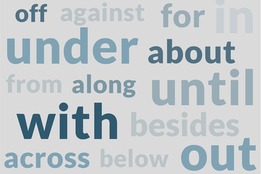What to KnowIn its current meaning, metaverse generally refers to the concept of a highly immersive virtual world where people gather to socialize, play, and work. Awareness of this term surged on October 29, 2021, when Facebook rebranded itself “Meta” and released a video in which CEO Mark Zuckerberg says, “I believe the metaverse is the next chapter for the internet.”
The Origin of 'Metaverse'
Neal Stephenson coined the term, and established a vision of a “computer generated universe,” in his 1992 novel Snow Crash:
“In the lingo, this imaginary place is known as the Metaverse. Hiro spends a lot of time in the Metaverse.”
Meta- here efficiently conveys the idea of transcending reality (as in metaphysics) and the more current use of meta as an adjective meaning “self-referential” or knowingly distinct from the conventional and concrete world.
In his video, Zuckerberg says that “meta comes from the Greek word for beyond,” and that’s basically correct. Etymologically, meta meant “after” in Greek, so metaverse also neatly implies a world or conception that requires the “real” world in order to move beyond it and acknowledge another realm.
How 'Metaverse' Is Used
The new or unfamiliar nature of the metaverse naturally has made its usage a bit unstable. Here it is used as a synonym of multiverse, meaning “a theoretical reality that includes a possibly infinite number of parallel universes.”
With its hegemony diminished, universe has given way to other terms that capture the wider canvas on which the totality of reality may be painted. Parallel worlds or parallel universes or multiple universes or alternate universes or the metaverse, megaverse, or multiverse—they’re all synonymous, and they’re all among the words used to embrace not just our universe but a spectrum of others that may be out there.
— Brian Greene, Discover, 2 August 2011
The term has more recently drifted further away from fiction and towards science, to refer to the “space” of the experience of virtual reality, including such real-world uses as the training of pilots:
Viewing virtual objects from different angles and perspectives, participants of aircraft metaverse can interact with 3D assets and have hands-on experience.
— Aziz Siyaev and Geun-Sik Jo, Sensors (Basel) Vol. 21, Iss. 6, (2021)
And the fact that the digital world is a business environment has brought metaverse into economic discussions as well.
...some proponents believe that blockchain technology and decentralized apps will be the keys to unlocking the next big leap forward for the Web: the metaverse, a place where augmented and virtual reality, next-generation data networks, and decentralized financing and payment systems contribute to a more realistic and immersive digital world where people can socialize, work, and trade digital goods.
—Ian Bremmer, Foreign Affairs, Nov.-Dec. 2021This is one of the main explanations people seem to provide for crypto-enthusiasts’ sudden turn to cubes: maybe they simply want something physical as a counterweight to crypto. “We deal with this immaterial virtual world—the metaverse, as we like to say,” Carter said.
—Sophie Haigney, GQ, 28 Oct. 2021
Words We're Watching talks about words we are increasingly seeing in use but that have not yet met our criteria for entry.











